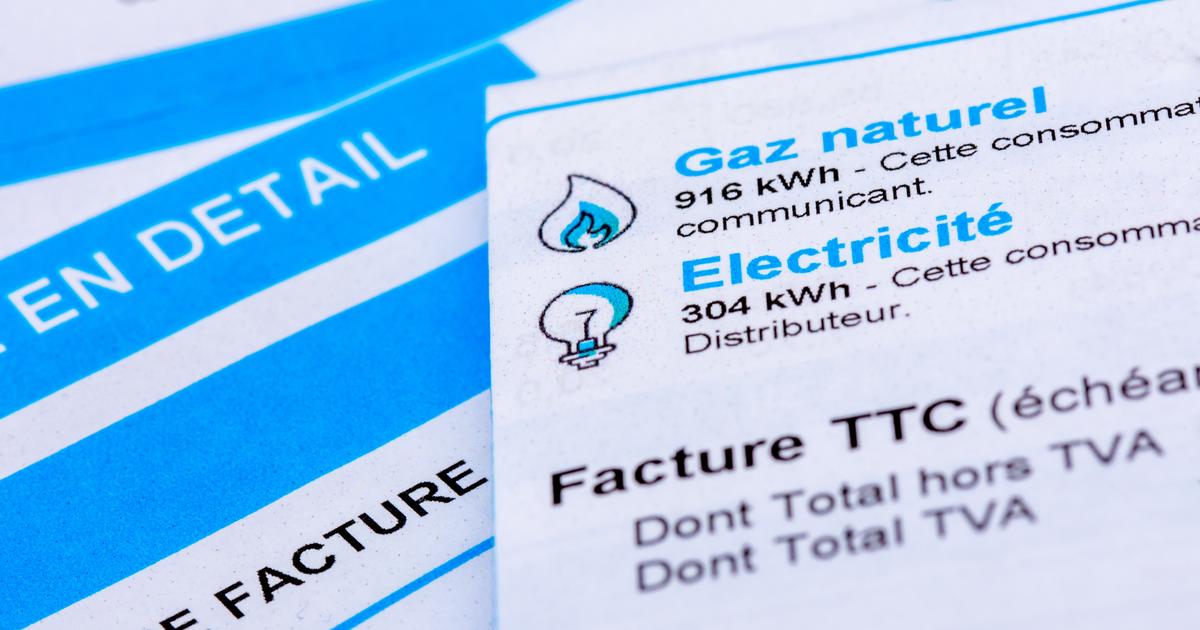Enlarge image
Gelsenkirchen-Schloven coal-fired power plant: The reactors are currently producing a lot of electricity again - due to the lack of wind and high gas prices
Photo: Jochen Tack / IMAGO
Ever higher costs for fossil fuels and emission rights as well as weak yields from wind farms are causing price records on Europe's electricity markets.
On Tuesday, the trend-setting futures contract for base load electricity for delivery next year on the Leipzig energy exchange EEX rose to over 160 euros per megawatt hour.
That corresponds to a good 16 cents per kilowatt hour - and that is around 300 percent more than in autumn 2020.
This means that Germany's electricity consumers will face considerable additional costs: both industry and end consumers.
"The high electricity price results from the high fuel prices and high CO2 prices"
Electricity for private households is already more expensive than ever before.
A kilowatt hour costs an average of 34.64 cents according to the consumer price index of the comparison portal Verivox.
That is around 22 percent more than a year ago.
For an average household with 4,000 kilowatt hours of consumption per annum, this means an increase in the price of around 250 euros.
And the next price surge is already in sight.
According to Verivox, at least 260 suppliers want to increase their electricity tariffs in January: an average of 7.1 percent - despite the lower EEG surcharge.
The EEG surcharge for the expansion of renewable energies is to be reduced from 6.5 to 3.7 cents per kilowatt hour at the turn of the year - and according to the coalition agreement of the traffic light parties, it will be completely eliminated at the beginning of 2023.
But the skyrocketing wholesale purchase prices overcompensate for the lower EEG surcharge.
Since the beginning of November, the electricity date contact in Leipzig for 2022 has increased by more than 50 percent.
"The high price of electricity results from the high fuel prices and high CO2 prices," says Hanns Koenig, market expert at the Aurora Energy Research consultancy, DER SPIEGEL.
Little wind, a lot of coal
The interplay of several factors is responsible for this bull market - starting with the weather.
Since there is currently little wind, the wind turbines deliver less electricity than usual;
Solar power is already in short supply in the local latitudes in December.
This is just leading to a small coal boom.
According to the Energy Charts portal of the Freiburg Fraunhofer Institute for Solar Energy Systems, more electricity is being generated in this country these days by lignite and hard coal power plants than by all green electricity systems combined.
Coal electricity is also really expensive at the moment:
more on the subject
Braking the energy transition: Why the world cannot get rid of coal
Study on power generation: Around 3,000 coal-fired power plants would have to be shut down by 2030
For one thing, the fuel costs are extremely high.
After all, world market prices for hard coal have risen sharply in the past year and a half - and despite a recent drop in prices, they are still well above long-term levels.
On the other hand, the costs for the pollution rights are higher than ever.
All electricity producers in the EU must present these emission certificates if they emit carbon dioxide (CO₂).
Since a particularly large amount of CO₂ is emitted when generating electricity from coal, the need for emission certificates is increasing.
The higher demand and speculation are also driving the certificate price higher and higher.
On Tuesday it was more than 80 euros per ton for the first time.
Nevertheless, electricity from coal is comparatively cheap - at least compared to electricity from gas-fired power plants.
Because their fuel costs have risen even faster in the past year and a half.
And they are just pulling back on.
On the European natural gas reference market TTF, one megawatt hour of natural gas cost around 95 euros on Tuesday, almost 30 euros more than at the beginning of November.
Concerns are growing about a possible gas shortage towards the end of winter and about a military conflict in the east.
"A certain risk of escalation in Ukraine is factored in on the gas markets," says expert Koenig.
Russia has deployed tens of thousands of soldiers on the border with its neighboring country.
In any case, Germany’s most important natural gas supplier is currently sending little gas to the west.
And the Federal Network Agency has put the certification of the Nord Stream 2 pipeline on hold for the time being.
Hundreds of gas suppliers in Germany have raised their retail tariffs, in some cases even doubled or tripled, in view of the drastic rise in wholesale prices.
Germany is already one of the industrial nations with the highest electricity prices for private households.
"If the development on the electricity and gas markets should last longer, it will be a political issue," says Koenig.
In France, Spain and Italy, governments have recently tried to curb energy costs: with short-term price moratoriums, tax rebates and subsidies.
Apart from the EEG surcharge, no such plans are known of the future Berlin traffic light coalition.













